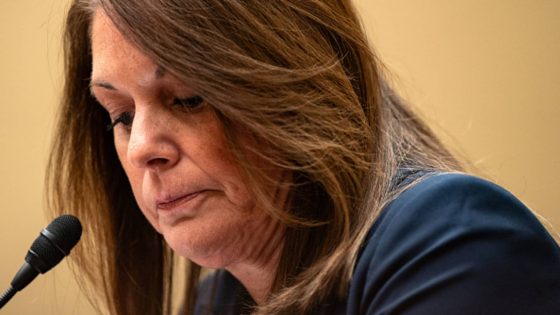The North Carolina Supreme Court tossed a grenade into the state’s election on Monday, violating both state and federal law to grant Robert F. Kennedy Jr.’s cynical, last-minute removal from the ballot. Its 4–3 decision will compel election administrators to destroy nearly 3 million already-printed ballots that featured Kennedy’s name and redesign 2,348 different ballot styles across the state to accommodate the eleventh-hour change. This complex process will significantly delay the distribution of new ballots—which will, in turn, unlawfully abridge early voting for everyone while jeopardizing the voting rights of service members overseas in clear contradiction of federal statute. It’s a nightmare for local election officials, who must now disregard the laws they’re sworn to uphold. And it’s an affront to North Carolinians at large, whose right to a fair, orderly election has been sabotaged by a lawless court and the candidate it so obviously favors.
Kennedy v. North Carolina State Board of Elections, Monday’s decision, is exactly what you’d expect from a court controlled by elected Republican justices. The facts are damning: After running for months as a third-party candidate, RFK Jr. “suspended” his campaign and endorsed Trump on Aug. 23. Kennedy then sought to selectively remove his name from the ballot, but only in swing states where it might help Trump. By the time Kennedy dropped out, the North Carolina State Board of Elections had informed candidates and parties that the deadline for replacing nominees would be Aug. 22.
Kennedy did not file his request for removal until Aug. 27, five days after the deadline and four days after he withdrew. By that point, county election boards were already printing ballots. Under state law, the board of elections may refuse a “late” request to remove a candidate from the ballot when removal is no longer “practical.” Another state law compels election officials to mail ballots to service members and others living overseas by Sept. 6. North Carolina’s state elections director testified that redesigning the ballot would take 18 to 23 days. So removing Kennedy’s name from the ballot—then designing and printing substitutes—would require election officials to violate state law. Even if these officials had begun removing Kennedy’s name the moment that he suspended his campaign, they could not have met the legal deadline.
Yet the North Carolina Supreme Court still sided with Kennedy. A bare majority ordered election officials to work around the clock to destroy 3 million ballots, redesign new ones for every locality, and mail them out as quickly as possible. The work and the cost of this undertaking falls primarily on badly underfunded county boards of elections. Monday’s decision also forces the board to shorten the early voting period, which was required by law to begin on Sept. 6. And the ruling may also push the state into a violation of federal law, which orders states to send absentee ballots overseas by Sept. 21. North Carolina election officials have warned the court that removing Kennedy may make it impossible to mail ballots by that date. It’s no exaggeration to say that the state Supreme Court is nullifying federal voting rights.
Why? Republican Justice Trey Allen’s opinion for the court accused the board of elections of misconduct, suggesting that it rushed to print ballots featuring RFK Jr. so he could not remove his name in time. This baseless accusation rests on the fact that the board did not stop printing ballots the moment that Kennedy announced his withdrawal—even though he did not say whether he’d withdraw from North Carolina in that speech, and did not file for removal in the state for five more days. Allen smeared election officials as lacking “clean hands,” maligning them for the crime of following the law as written.
In search of a legal justification, Allen cited the North Carolina Constitution’s guarantee that “all elections shall be free.” Keeping Kennedy on the ballot after his withdrawal, the justice wrote, would infringe upon this “fundamental” and “exclusive right” by denying them “accurate information regarding the candidates.” What’s most preposterous about this logic is that Allen and his conservative colleagues have gutted this very right at every opportunity. As soon as conservative justices flipped the court in 2023, they overturned precedents protecting citizens’ ability to participate in “free elections.” Most notoriously, they reversed several landmark rulings that limited partisan redistricting, giving the GOP-dominated Legislature carte blanche to gerrymander Democrats into a permanent minority. In the process, these justices dismissed the guarantee of “free elections” as little more than an aspirational statement of principle.
Now, in an about-face, the conservative justices have turbocharged the free elections clause—but only to reward RFK Jr.’s gamesmanship on Trump’s behalf. Evidently, this clause is so meaningless that it does not limit the Legislature’s authority to punish citizens for voting Democratic by denying them fair representation. At the same time, it is somehow so powerful that it compels courts throw elections into chaos and uncertainty, in violation of state and federal law, to benefit a candidate who broke the rules.
What happens next? The elections board is desperately racing to design and print ballots to meet the federal deadline, but it may not succeed. Voters both stateside and abroad face a denial of their right, secured by state and federal statute, to vote early. “The whims of one man,” as Justice Allison Riggs warned in dissent, “have been elevated above the constitutional interests of tens of thousands of North Carolina voters.” Indeed, Monday’s decision substantially shortens the early voting period of all North Carolinians, and threatens the ability of service members stationed overseas to receive and return their ballot in time for the election. Voters who requested an absentee ballot were, by law, entitled to get them mailed out by Sept. 6. Now these ballots cannot be mailed out for weeks. The ruling was so destabilizing that even Justice Richard Dietz, a conservative, felt moved to dissent, faulting the majority for failing “to follow the law as it is written.”
It was Riggs, though—joined by the court’s one other liberal, Justice Anita Earls—who laid bare the shameless partisan hackery on display. “Today, any public aspersions cast on the impartiality, independence, and dignity of our state courts are well-earned,” she wrote in her dissent, decrying “the magnitude of the harm” inflicted as “egregious and unjustified.”
It’s telling that Riggs took the unusual step of inviting the public to condemn not just the majority’s decision, but its integrity as a judicial body. North Carolina’s justices are elected, and Riggs is running on November’s ballot for an eight-year term against Republican Jefferson Griffin. Over the past four years, Republicans flipped four seats on the court, consigning Democrats to a 5–2 minority. If Griffin unseats Riggs, then Earls will be the last remaining liberal. It would take decades to shift the court anywhere near the center, let alone flip it to the left. All the while, a far-right supermajority would run roughshod over North Carolinians’ rights and continually interfere in elections to benefit Republicans.
That, of course, is what’s going on here. North Carolina is hugely competitive; polls indicate that Trump and Kamala Harris are effectively tied. Harris’ first two rallies after Tuesday’s debate will be held in the state, a sign of its extraordinary importance. As a candidate, RFK Jr. appeared to siphon more votes from Trump than from his Democratic opponent. He is removing himself from the ballot in swing states because he fears his supporters will vote for him if his name appears, and vote for Trump if it does not. And because he waited until the last minute, early voters—who skew Democratic in the state—will be denied their ballots on time. Now the North Carolina Supreme Court is breaking the law to abet Kennedy’s efforts on Trump’s behalf. If the state’s voters are sick of political chaos infecting their judiciary, Riggs’ election gives them an opportunity to fight back—if election officials can still get their ballots out in time.
Source Agencies


